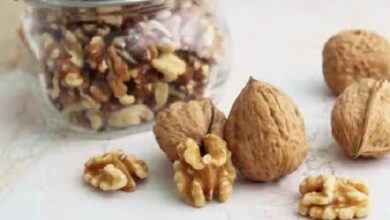Spaghetti Squash Nutrition Facts
Spaghetti squash, a versatile and nutrient-rich vegetable, has gained popularity for its low calorie content and unique texture that resembles pasta when cooked. This makes it an excellent choice for those seeking healthier alternatives to traditional pasta dishes. In this article, we will delve into the detailed nutrition facts and health benefits of spaghetti squash, providing you with all the information you need to incorporate this nutritious vegetable into your diet.

Nutritional Breakdown
Spaghetti squash is not only low in calories but also packed with essential vitamins, minerals, and antioxidants. Here’s a detailed look at its nutritional profile per 100 grams:
- Calories: 31 kcal
- Carbohydrates: 6.91 g
- Protein: 0.64 g
- Total Fat: 0.57 g
- Cholesterol: 0 mg
- Dietary Fiber: 1.5 g
Vitamins and Minerals
- Vitamin A: 120 IU
- Vitamin C: 2.1 mg
- Folates: 12 μg
- Niacin: 0.950 mg
- Pantothenic Acid: 0.360 mg
- Pyridoxine: 0.101 mg
- Riboflavin: 0.018 mg
- Thiamin: 0.037 mg
- Sodium: 17 mg
- Potassium: 108 mg
- Calcium: 23 mg
- Copper: 0.037 mg
- Iron: 0.31 mg
- Magnesium: 12 mg
- Manganese: 0.125 mg
- Phosphorus: 12 mg
- Selenium: 0.3 μg
- Zinc: 0.19 mg
Health Benefits
Low in Calories and Carbohydrates
Spaghetti squash is an excellent choice for those watching their calorie and carbohydrate intake. With only 31 calories per 100 grams and 6.91 grams of carbohydrates, it is significantly lower in both compared to traditional pasta, making it ideal for weight management and low-carb diets.
High in Dietary Fiber
One of the key benefits of spaghetti squash is its high fiber content. Dietary fiber is essential for digestive health, helping to regulate bowel movements, prevent constipation, and reduce the risk of gastrointestinal diseases. Fiber also aids in weight management by promoting a feeling of fullness and reducing overall calorie intake.
Rich in Vitamins and Antioxidants
Spaghetti squash is a good source of vitamins A and C, which are powerful antioxidants that help protect the body from free radicals and reduce inflammation. Vitamin A is particularly beneficial for eye health, while vitamin C supports the immune system and skin health.
Supports Heart Health
The potassium content in spaghetti squash helps maintain healthy blood pressure levels by balancing the effects of sodium. Additionally, the fiber in spaghetti squash can help lower LDL cholesterol levels, contributing to overall heart health.
Low Glycemic Index
With a low glycemic index, spaghetti squash does not cause rapid spikes in blood sugar levels, making it a suitable option for individuals managing diabetes or those seeking to stabilize their blood sugar.
Preparation and Cooking Tips
To enjoy spaghetti squash, follow these simple preparation steps:
- Selection: Choose a firm spaghetti squash with a smooth, unblemished rind. It should feel heavy for its size.
- Storage: Store in a cool, dry place for up to three months. Once cut, wrap the sections in plastic and refrigerate for 2-3 days.
- Cooking: Cut the squash lengthwise, remove the seeds, and place it cut-side down on a baking sheet. Roast in the oven at 400°F (200°C) for about 40-50 minutes until tender. Use a fork to scrape out the flesh into noodle-like strands.
Serving Ideas
- As a Pasta Substitute: Top with your favorite pasta sauce for a low-carb alternative to traditional pasta.
- In Salads: Add roasted spaghetti squash to salads for extra texture and nutrition.
- As a Side Dish: Simply season with olive oil, salt, and pepper, and serve as a side dish.

Frequently Asked Questions
What are the main nutrients in spaghetti squash?
Spaghetti squash is rich in dietary fiber, vitamins A and C, potassium, and several B-complex vitamins.
Is spaghetti squash good for weight loss?
Yes, due to its low calorie and high fiber content, spaghetti squash can help promote weight loss by increasing satiety and reducing overall calorie intake.
How does spaghetti squash benefit digestion?
The high fiber content in spaghetti squash supports healthy digestion by promoting regular bowel movements and preventing constipation.
Can spaghetti squash help manage blood sugar levels?
Yes, spaghetti squash has a low glycemic index and contains polysaccharides that prevent blood sugar spikes, making it suitable for those managing diabetes.
How should I store spaghetti squash?
Store whole spaghetti squash in a cool, dry place for up to three months. Once cut, wrap the sections in plastic and refrigerate for 2-3 days.
By incorporating spaghetti squash into your diet, you can enjoy a nutritious and delicious alternative to traditional pasta that offers numerous health benefits. Whether you’re looking to manage your weight, support heart health, or simply enjoy a tasty and versatile vegetable, spaghetti squash is an excellent choice.





